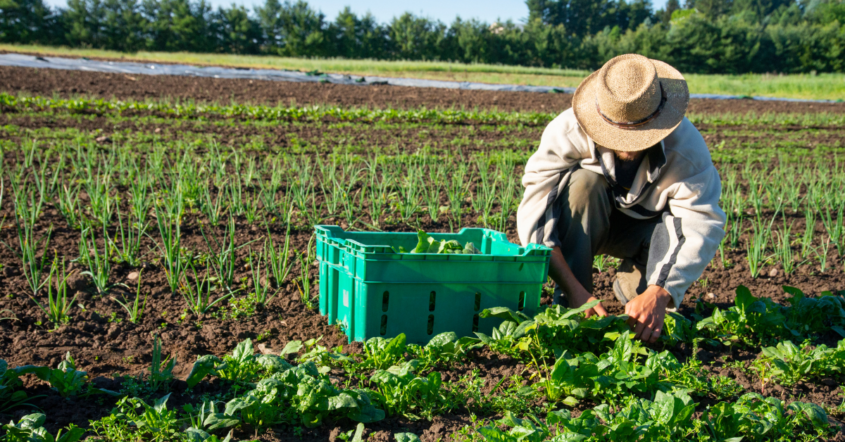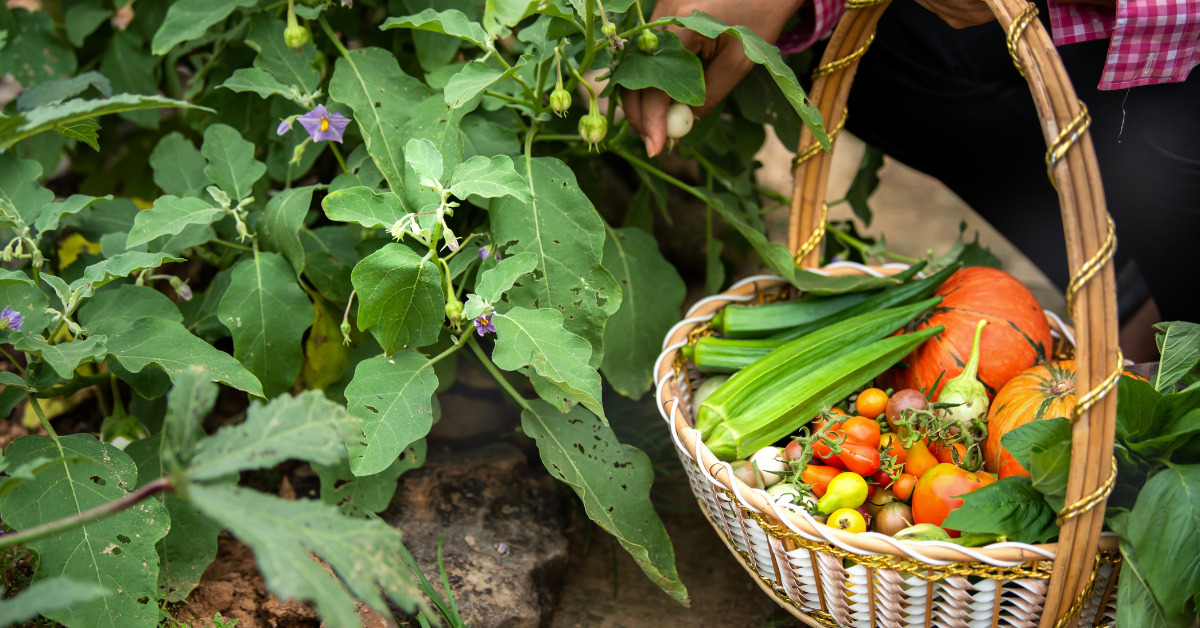Organic Farming: 8 benefits for the planet

As you navigate the aisles of your local grocery store, the presence of signs advertising organic products may catch your eye. While organic items typically come with a higher price tag, and may appear quite similar to their non-organic counterparts, it’s essential to delve into the profound advantages that organic farming offers to our environment.
What exactly makes organic farming environmentally friendly, and why does it stand apart from conventional practices?
In most supermarkets, the majority of the produce on display is non-organic. This implies that the journey from farm to market is not subject to the same rigorous regulations as that of organic fruits and vegetables. Although both methods yield fresh products, it’s worth noting that organic farming is widely recognized as a safer and more eco-conscious option.
Organic farming is committed to enhancing the health and sustainability of our environment. It hinges on the principle of ecosystem management rather than depletion. Organic farmers must adhere to strict federal regulations to maintain the organic integrity of the products they bring to market.
In this article, we will explore the extensive range of environmental benefits associated with organic farming, with an emphasis on key aspects and even introduce a new, critical advantage.

Organic Farming: 8 benefits
1. Elimination of Harmful Pesticides
Organic farming unequivocally bans the use of harmful chemicals and pesticides. These toxic substances were initially introduced to combat pests that threatened crop yields or posed nuisances to humans. Unfortunately, their widespread use has resulted in dire consequences for the environment, including soil, water, and air contamination.
In contrast, organic farmers employ natural techniques such as the strategic use of cover crops, composting, and crop rotation to manage pests without resorting to harmful pesticides or chemicals.
2. Soil Health Maintenance
As previously mentioned, pesticides and chemicals can contaminate soil, posing a grave threat to the quality of produce. Healthy soil is the bedrock of nutritious crops. Organic farmers prioritize soil health by employing natural fertilizers like compost, which teems with beneficial bacteria that contribute to soil enrichment.
3. Reduction of Erosion
Organic farming practices cultivate robust and fertile soil, naturally reducing the incidence of erosion. When soil is rich in biodiversity and strengthened bonds, erosion becomes a rare occurrence. In contrast, the use of chemical fertilizers often leads to soil compaction and drying, exacerbating erosion problems. Moreover, organic farmers limit field tillage, minimizing soil disturbance and further preventing erosion.
4. Preservation of Clean Water Supplies
Access to clean water is indispensable for all living beings, including humans, animals, and plants. Regrettably, non-organic farming methods are significant contributors to water pollution. Runoff from agricultural fields, laden with chemicals and fertilizers, often contaminates water sources.
Organic farming actively combats water pollution by employing practices such as mulching and soil amendments to prevent runoff, thereby safeguarding the quality of our water sources. Additionally, conscientious monitoring of water usage for irrigation further conserves this invaluable resource.
5. Curbing Non-Renewable Energy Dependence
Conventional farming practices contribute to climate change by emitting greenhouse gases at every stage of the production process. These emissions arise from the use of fertilizers, the reliance on fossil fuel-powered equipment for planting and harvesting, and the production of feed for agricultural animals.
Organic agriculture enforces stringent controls on non-renewable energy sources, effectively reducing carbon emissions. In essence, organic farming plays a vital role in mitigating climate change.
6. Algae Bloom Prevention
Algal blooms can pose significant threats to the environment, adversely affecting the health of humans and aquatic ecosystems. Often, these blooms are triggered by runoff from farms carrying chemicals and fertilizers. Once unleashed, these blooms can grow uncontrollably and prove challenging to eliminate.
Apart from their environmental harm, algal blooms also have economic consequences, affecting the livelihoods of those in marine and freshwater industries. Notably, organic farming avoids the use of harmful fertilizers, thereby reducing the risk of algae blooms.
7. Fostering Biodiversity
Organic farmers recognize the intrinsic value of biodiversity. A diverse ecosystem on a farm enhances stability and resilience against invasive species. The harmonious coexistence of various plants, animals, and microorganisms promotes both soil and animal health.
These diverse elements can work synergistically to prevent disease and erosion, thereby reducing the need for chemical fertilizers and pesticides.
8. Preservation of Genetic Diversity
An often-overlooked benefit of organic farming is its contribution to the preservation of genetic diversity in crops. Conventional agriculture has a tendency to favor a limited range of high-yielding, genetically uniform varieties.
In contrast, organic farming often embraces a wider array of traditional, heirloom, and locally adapted crop varieties. This preservation of genetic diversity is essential for food security and resilience in the face of changing environmental conditions.

What is the correlation between organic farming and ecovillage?
Organic farming and ecovillages often share a strong correlation as they both emphasize sustainable and environmentally friendly practices:
- Environmental Sustainability: Both organic farming and ecovillages prioritize environmental sustainability. Organic farming minimizes the use of synthetic chemicals and focuses on practices that enhance soil health and preserve natural ecosystems. Similarly, ecovillages aim to create sustainable living environments that minimize harm to the planet through practices like renewable energy use, waste reduction, and green building techniques.
- Local and Community Focus: Organic farming and ecovillages tend to emphasize local and community-based approaches. Organic farms often supply fresh, locally grown produce to nearby communities, reducing the environmental impact of long-distance transportation. Ecovillages are typically designed as intentional communities where residents work together to meet their needs locally, including food production through practices like organic farming.
- Holistic and Natural Living: Both organic farms and ecovillages promote holistic and natural living. Organic farming recognizes the interconnectedness of ecosystems and aims to work in harmony with nature. Ecovillages take this concept further by integrating sustainable practices into all aspects of community life, including energy, housing, transportation, and food production.
- Reduced Environmental Impact: Both organic farming and ecovillages seek to reduce their environmental footprint. Organic farming reduces chemical pollution and promotes biodiversity, while ecovillages often incorporate renewable energy sources, reduce waste, and encourage sustainable transportation options, collectively leading to a smaller ecological impact.
- Education and Awareness: Ecovillages often serve as educational hubs, sharing knowledge about sustainable living practices with the wider community. Organic farms within ecovillages can serve as living examples of sustainable agriculture, offering educational opportunities about the benefits of organic farming.
As you can see, the ecological benefits of organic farming are far-reaching and multifaceted. By choosing organic products, you are making a conscious and positive contribution to the health of the environment, the stability of the economy, the well-being of future generations, and the preservation of genetic diversity.
Organic farms stands as a shining example of sustainable and responsible agriculture, offering solutions to many of the environmental challenges we face today.



